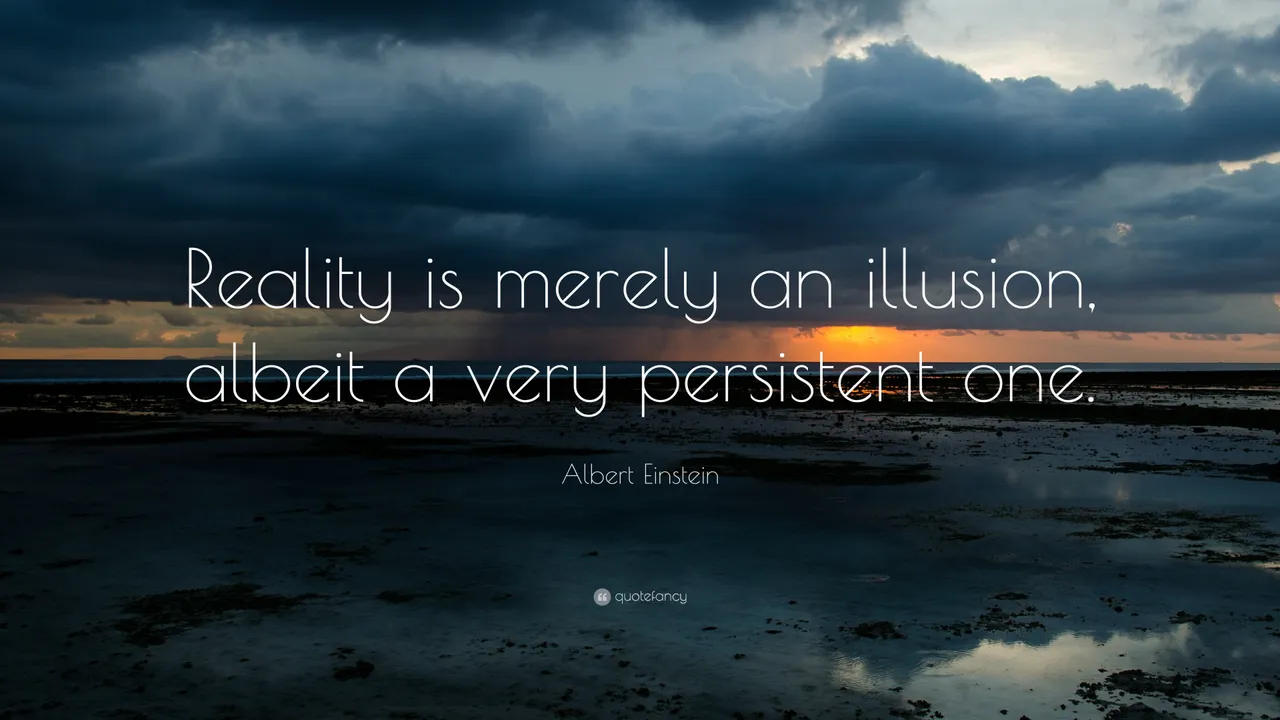Democritus, a great thinker of ancient Greek times, was the inventor of atoms. He was a disciple of Leukippos and lived from about 460 BC to about 370 BC. He was the last, really great natural philosopher.
This man postulated purely out of his pure ability to think that the world must be composed of atoms. Smallest, indivisible particles. Hence our name for atoms comes from the Greek verb atomos which means almost indivisible, uncuttable.
An atom is thus the "not-cuttable" one. To the world, as we experience it, Democritus said that colours are nothing else than the opinion of people and also tastes like sweet and sour are only subjective terms. In reality there are only atoms or emptiness.
He could have been as far advanced with this assessment almost two and a half thousand years ago as the physicists who today are beginning to doubt the reality of reality. And not only from one point of view.
If you know that sharks have a sense for weak electromagnetic fields with which they "see" or "feel" fish under the sand, if you know that bees see flowers in completely different colours than we do, that bats perceive their environment very precisely as a pattern of reflected ultrasonic waves, then you have to ask yourself what is actually a "reality".
Realities are very different depending on the possibilities of perception one has. With our eyes we see only a very small part of the electromagnetic spectrum.
To illustrate this:

source
So we perceive only a tiny segment of electromagnetic waves and think that this is the reality that we depict in our brains based on this information. That was enough to find our way around the world. But for example the dangers below microwave radiation, we don't see them at all, and yet they are there because of our technologies.
If we were to see them as light, we would only be completely blinded. Most of the electromagnetic reality outside the small spectrum invisible to us escapes us completely. The same applies to sound waves. Our earth is humming quite loudly, but we do not hear that. Neither does the cry of the bat.
Elephants communicate with infrasound, we don't hear that either. And yet it is a reality we already know. Smells are also something that other living beings on this planet can do with an incredible fineness and precision that we have no idea about. A bear, for example, smells prey, a female bear or water miles away.
We don't know what else there is to perceive, for which we have no senses at all.
Professor Leonard Susskind of Stanford University is one of the bright minds who is wondering where the illusion of reality is being formed. His very difficult theory, which scientists around the world regard as quite serious, is that we could live in a kind of hologram projected everywhere from the edge of the universe.
Thus, our perception of three-dimensional reality is an illusion, which we have not set up perfectly, but very well, to find our way around. Our natural sciences and their attempts to explain the laws around us, what sustains this reality, could be seen as a small manual, so to speak, to find our way in this reality and how they function in order to interact with it. But also to be able to create something new in it.
For example our technology, or how we can construct buildings within these laws of nature that last long without being swept away by nature. We are almost like little goldfishs in an aquarium. Actually it is a bad example but it still fits. We humans want to understand the circumstances and also live in an aquarium-like reality. As Stephen Hawking had said:
If a goldfish lives his whole life only in a curved glass, for him only a curved view of everything exists. If you take him out of the glass, the world we consider normal seems wrong to him and he would want to explore it if he could. For example, where this change comes from. So if we look for example through the glass of the goldfish we also see the world as distorted although it is right and normal for the fish. So who tells us that we don't look at everything completely wrong? But one would ask oneself this question only if one is snatched from the usual view? So torn away from our reality and thrown into another one ...
But how could something like that work? How could we free ourselves from our reality and go into another? Are we even capable of that? Or are we trapped here?
Max Tegmark from the renowned MIT approaches reality in a different way, namely mathematically. He says that mathematics is the language of physicists, which can be traced back to Einstein, because he laid the groundwork for its use. It can describe the laws and processes in a comprehensible and precise way. And the more you research and get into matter, the further you penetrate into the mystery of reality, the more mathematical laws you find. And although you are a scientist, what you find is forcing you more and more to marvel and respect at how precisely mathematics describes three-dimensional reality.
I had already written about Max Tegmark before and that he believes that there are parallel universes and dimensions out there, and that everything would be mathematically explainable because everything is a mathematical construct - a matrix whose programming and formula we discover. And in order to discover even more, we have to open ourselves even more to new thoughts.
Is that really the case? Is what we call reality a sophisticated mathematical construct? Or does it mean that we're just finding out that we're actually just figurines in a giant computer game and are completely amazed to discover the programming behind what we call our lives?
And if so... who plays the game?






